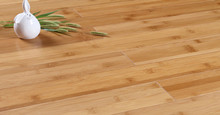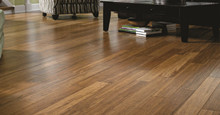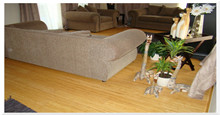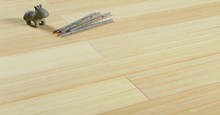Posted on 2024-10-4 8:28:26
When it comes to furniture design and construction, the choice of material plays a crucial role in determining both the aesthetics and functionality of the final product. In recent years, bamboo plywood has emerged as a popular alternative to traditional wood plywood. While wood has long been the go-to material for furniture making, bamboo plywood offers several advantages that make it a superior choice. This article explores the benefits of bamboo plywood over wood plywood, focusing on sustainability, strength, versatility, cost-effectiveness, and aesthetic appeal.
Sustainability
Rapid Growth: Bamboo is one of the fastest-growing plants in the world, capable of reaching heights of over 100 feet in just a few months. This rapid growth means that bamboo can be harvested sustainably without causing significant environmental damage. In contrast, traditional hardwood trees often take decades or even centuries to mature, leading to deforestation and habitat destruction.
Carbon Sequestration: Bamboo is exceptionally effective at carbon sequestration, absorbing more carbon dioxide than most tree species. This ability helps mitigate climate change by reducing greenhouse gases in the atmosphere. The cultivation of bamboo can also restore degraded land, making it an excellent choice for environmentally-conscious consumers.
Reduced Deforestation: By choosing bamboo plywood, consumers can help reduce the demand for hardwood, which often leads to deforestation. Bamboo is a renewable resource that can be harvested repeatedly without depleting the ecosystem. This makes bamboo a more sustainable choice for furniture manufacturers and environmentally-minded consumers alike.
Strength and Durability
High Strength-to-Weight Ratio: Bamboo plywood is known for its impressive strength-to-weight ratio. It can withstand heavy loads without bending or breaking, making it an ideal material for furniture that requires durability and support. In fact, bamboo is often stronger than many hardwoods, such as oak or maple, which means furniture made from bamboo plywood can last for years without compromising structural integrity.
Resistance to Warping and Cracking: One of the significant drawbacks of wood plywood is its susceptibility to warping, cracking, and splitting due to changes in humidity and temperature. Bamboo plywood, on the other hand, has a natural resistance to these issues, ensuring that furniture remains stable and functional over time. This characteristic is especially beneficial for items such as tables and chairs that are frequently subjected to stress and weight.
Versatility
Aesthetic Flexibility: Bamboo plywood offers a unique aesthetic that can complement various design styles, from modern to rustic. Its natural grain patterns and color variations can be highlighted or modified to suit the desired look of the furniture. Additionally, bamboo plywood can be easily stained or finished, allowing for further customization.
Variety of Applications: Bamboo plywood is highly versatile and can be used for various types of furniture, including cabinets, tables, chairs, and shelving units. Its lightweight nature makes it easier to work with during construction, enabling designers and craftsmen to experiment with intricate designs and shapes that may be more challenging with traditional wood plywood.
Eco-Friendly Finishing Options: Many manufacturers offer eco-friendly finishes for bamboo plywood, further enhancing its appeal as a sustainable material. These finishes are often low in volatile organic compounds (VOCs), making them safer for indoor use and better for the environment.
Cost-Effectiveness
Competitive Pricing: While bamboo plywood may initially appear more expensive than some traditional wood plywood options, its cost-effectiveness becomes evident over time. The durability and longevity of bamboo plywood mean that consumers are likely to make fewer replacements or repairs, ultimately saving money in the long run.
Reduced Maintenance Costs: Due to its resistance to warping, cracking, and other forms of damage, bamboo plywood furniture requires less maintenance than wood plywood. This reduction in maintenance needs can translate to further cost savings for homeowners and businesses alike.
Health Benefits
Low Chemical Emissions: Bamboo plywood is often manufactured using eco-friendly adhesives and finishes, resulting in lower levels of harmful chemicals being released into the environment. This is particularly beneficial for indoor furniture, as lower emissions contribute to better indoor air quality.
Non-Toxic Properties: Many bamboo products are naturally resistant to pests and mold, reducing the need for chemical treatments that can be harmful to human health. As a result, bamboo plywood furniture is often considered a safer option for families, particularly those with children or individuals with allergies.
Cultural and Economic Impact
Supporting Local Economies: The bamboo industry often supports local communities, particularly in developing countries where bamboo is cultivated. By choosing bamboo plywood, consumers can contribute to local economies and help create jobs in sustainable industries. This can lead to improved livelihoods for farmers and workers involved in bamboo production.
Cultural Significance: In many cultures, bamboo holds significant cultural value and is often associated with resilience, strength, and sustainability. By choosing bamboo plywood for furniture, consumers can embrace these cultural meanings while supporting environmentally-friendly practices.
While traditional wood plywood has long been favored for furniture making, bamboo plywood presents compelling advantages that make it a superior choice. Its sustainability, strength, versatility, cost-effectiveness, and health benefits position it as a material that aligns with modern consumer values. As awareness of environmental issues grows and demand for eco-friendly products increases, bamboo plywood is set to become an increasingly popular option for furniture makers and consumers alike. Embracing bamboo plywood not only leads to high-quality, durable furniture but also contributes to a more sustainable future for our planet.
By choosing bamboo over traditional wood, we not only enhance our living spaces but also play a part in protecting the environment and supporting local economies. As the furniture industry continues to evolve, bamboo plywood stands out as a leading material for those looking to make responsible and stylish choices.



